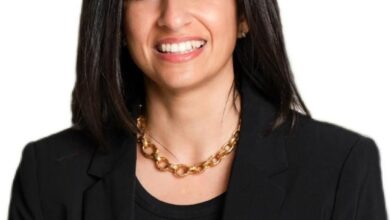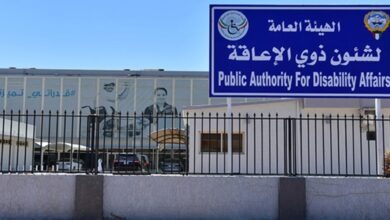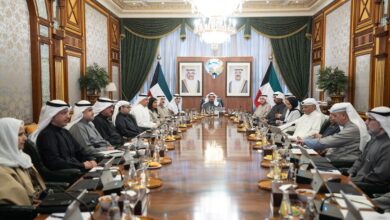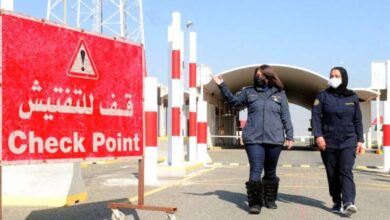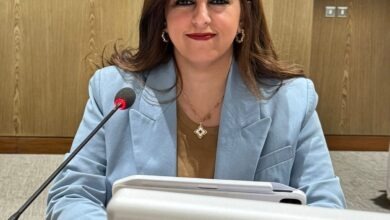Canada, Kuwait ties built on shared values, respect for diversity
Canadian envoy bids farewell to Kuwait after an impactful tenure marked by a transformative diplomacy, humanitarian triumphs and lasting partnerships.
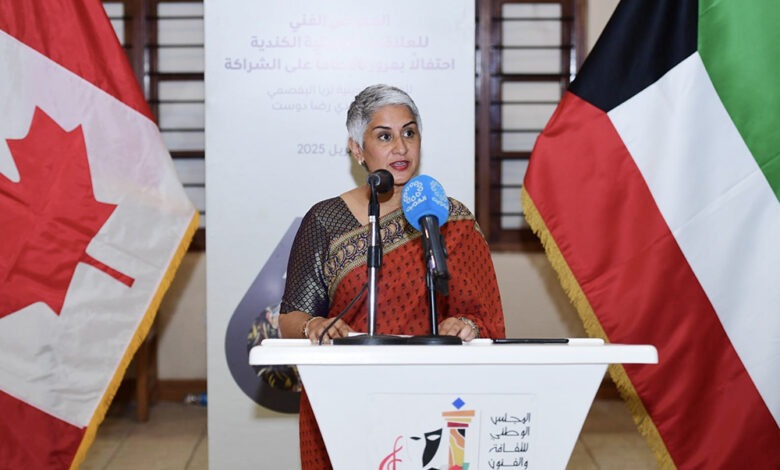
By Reaven D’Souza
Executive Managing Editor
Ambassador of Canada H.E. Aliya Mawani expressed her deep gratitude to the government and people, both citizens and residents who supported her during her three-and-a-half-year tenure in Kuwait. She recalled arriving in Kuwait in November 2021, at a time when COVID-19 restrictions were just being lifted, to begin a new era of cooperation between Canada and Kuwait, marked by openness and a focus on strengthening bilateral relations in all fields.
“At that time, people were rediscovering human interaction after the pandemic, which created the perfect environment for me as an ambassador to engage in warm and dynamic relationships,” she said.
Ambassador Mawani emphasized that Canada has long viewed Kuwait as a strategic partner, particularly since the establishment of a Canadian military contingent at the Ali Al Salem Air Base. This base serves as a hub and allows Canadian forces to play a vital role in both humanitarian and security operations across the region—from Iraq to Lebanon. Speaking of the evacuation efforts following the fall of Kabul, she noted that “Kuwait was instrumental in helping us evacuate close to 4000 Canadians and Afghans.”
Among other notable milestones in Canada-Kuwait relations was the signing of a Memorandum of Understanding (MOU) on Strategic Dialogue, covering political, commercial, educational, health, and security cooperation. Another MOU to promote development cooperation.
“What stands out to me, personally, is the openness and enthusiasm I’ve encountered from Kuwaiti institutions. There’s a clear willingness to engage, to collaborate, and to grow—qualities that make partnership truly meaningful. Canada and Kuwait share more than just economic or security interests—we are aligned in our belief in multilateralism, international law, and a commitment to a safer, more prosperous world.
“The 60th anniversary of diplomatic relations offers a unique opportunity for collaboration: Kuwait holds the presidency of the GCC, while Canada holds the G7 presidency. Both countries are in leadership positions within their respective international groupings, and this alignment offers momentum for dialogue and cooperation at a global level. Amid a rapidly changing world, it has never been more important to maintain strong, values-based partnerships.
“We must continue engaging with each other, talking regularly, and building bridges in new areas as new challenges and opportunities arise. Looking ahead, we anticipate a meeting between our foreign ministers during the UN General Assembly in New York. This will mark the next major step in deepening our bilateral ties, and discussions will continue beyond that on areas like strategic cooperation, mobility, and more.”
On the issue of expanding cooperation across various sectors, the Canadian envoy noted that the Canada–Kuwait relationship has seen tangible growth in several key areas, including trade and investment, healthcare, education and scientific research, artificial intelligence and data protection, security and defense cooperation.
In healthcare, she praised the collaboration between Kuwait’s Ministry of Health and the Royal College of Physicians and Surgeons of Canada, which conducts the annual Canadian Board exams in Kuwait. An increasing number of Kuwaiti institutions now seek Canadian accreditation due to Ottawa’s high academic standards.
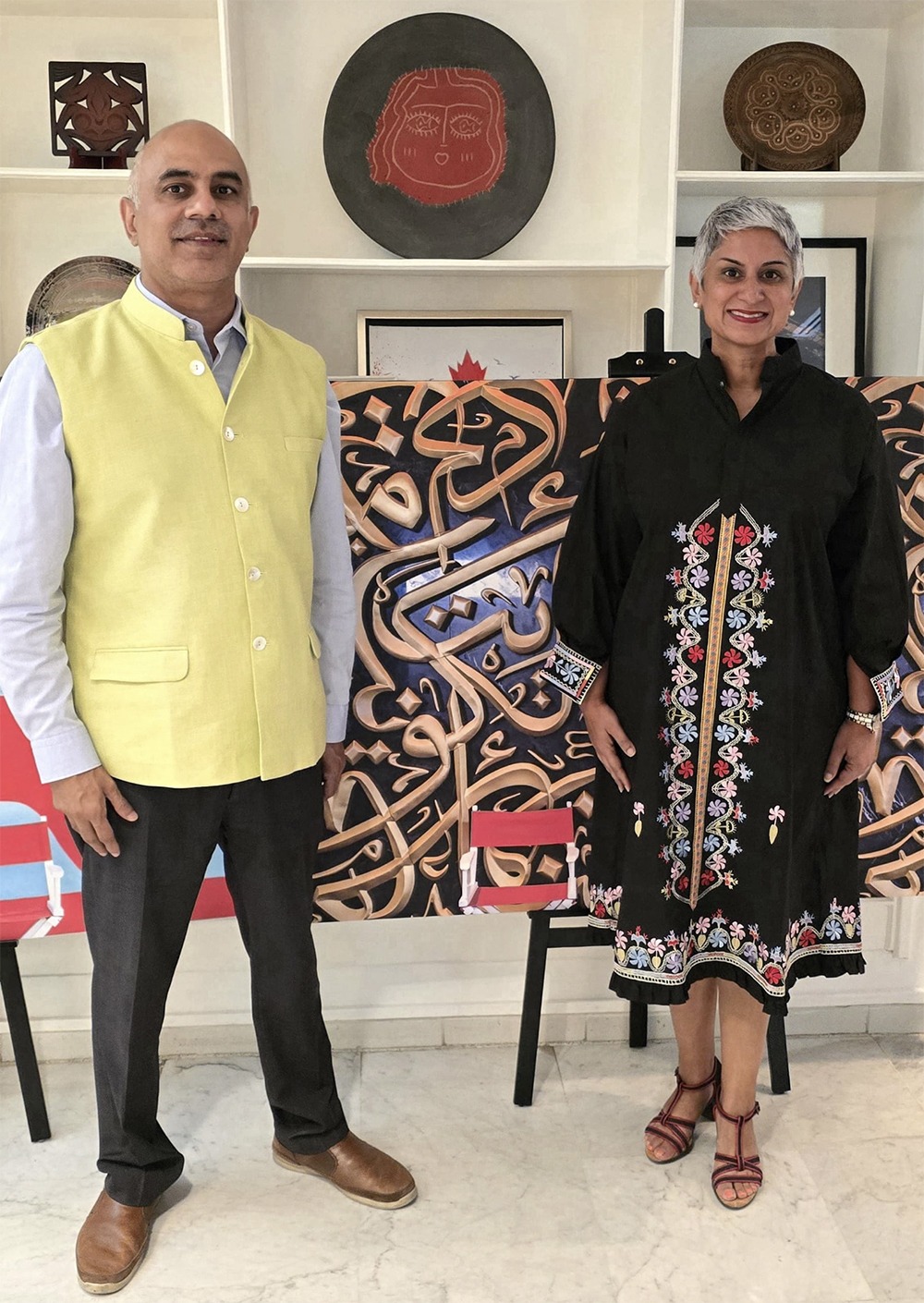
She disclosed, approximately 450 Kuwaiti students study medicine in Canada each year, and all available seats are filled annually. “It has been such a pleasure to connect with doctors and healthcare professionals trained in Canada who are leaders and mentors in their fields across Kuwait and I’m proud that Canadian education is contributing to Kuwaiti society in this way.”
There is growing interest among Kuwaiti women to pursue education in Canada — a reflection of the trust in its academic environment. We are working to strengthen cooperation with Canadian universities and gain recognition for them in Kuwait,” said the envoy.
“Canada is also a leader in Artificial Intelligence, and we have been actively working to foster B2B partnerships and innovation exchanges in this fast-moving sector. Similarly, food security is another critical area where Canada has much to offer as a major global producer and innovator in agricultural technology.
“Thanks to our work across sectors, Kuwait has become Canada’s third-largest market in the GCC, a testament to the strength and diversity of our economic ties. We’re continuing to build in key sectors like defense, security, education, and healthcare—responding to Kuwait’s priorities and offering solutions that align with our shared values.
Ambassador Mawani described her experience as a female diplomat in Kuwait as overwhelmingly positive. She praised the leadership role of Kuwaiti women in academia, women leaders in the private sector and civil society and educational institutions and commended Kuwaiti society for its support of female diplomats.
“I never felt discriminated against or faced obstacles because I was a woman. On the contrary, I had full freedom to engage with all sectors, from women-led events to formal diplomatic meetings.”
She also praised Kuwait’s media landscape, calling it active, respectful, and rooted in a culture of dialogue and openness. She said the embassy’s relationship with local media fostered trust and transparency. “Kuwaiti media is distinguished by its ability to manage debates professionally and respectfully, even in the face of differing opinions.”
Ambassador Mawani noted that Canada’s visa application process is now entirely online and fingerprinting and passport submission is done through the VFS application office in Kuwait City. She noted that visas are generally granted for the validity of the passport to make things more efficient for travelers. Regarding regional developments, Ambassador Mawani stated that Canada is closely monitoring rising tensions with concern, and supports regional stability, adherence to international law, and multilateralism.
Canada is working with partners in the region, particularly the United Nations, to promote de-escalation and peaceful resolution of conflicts. Canada is also engaged in UN reforms to maintain a relevant and effective multilateral system. As current president of the G7, Canada plays a role in convening parties, both within and outside the G7, to address regional and global challenges.
Asked what it is about Kuwait that she will miss most after leaving Kuwait, Ambassador Mawani said, three things about Kuwait that I will always treasure are the warmth and openness of the people and the deep friendships that I formed here. Another is the rich and fantastic Kuwaiti cuisine. And, on a professional level, I will miss the unique environment that Kuwait offers of an openness that fosters real opportunities to collaborate and to turn conversations into impactful programs, such as partnerships with the ICRC, the UNHCR, and the Kuwaiti government initiatives.
The Canadian envoy disclosed that at the end of her tenure in Kuwait she will be playing a key role at the headquarters implementing Canada’s Arctic foreign policy and engagement, which is a top government priority. She explained that this would allow her time to be closer to family and spend time with her parents in Canada. Ambassador Mawani also revealed that her successor will be Tara Scheurwater, a seasoned diplomat who has previously served in Japan and India. She wished Scheurwater all success during her upcoming posting in Kuwait.
Follow The Times Kuwait on X, Instagram and Facebook for our special reports







